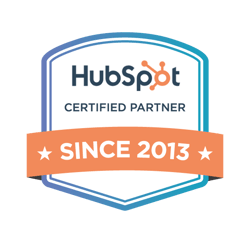 One of the most essential things you can do in your career is become an expert in whatever field you are in. I know it’s easier said than done, but becoming an expert in your field is critical, especially in the very early stages of your career. In an age where you are finding more specialized careers in business such as digital marketing, inside sales, CRM implementation, and more, it’s essential to find your niche in order to see your career grow. When you become focused, you become an expert and an asset to various levels of the business. As a generalist, you may get “stuck” in a role that becomes more administrative, instead of a role where you can grow into a strategic partner adding business value.
One of the most essential things you can do in your career is become an expert in whatever field you are in. I know it’s easier said than done, but becoming an expert in your field is critical, especially in the very early stages of your career. In an age where you are finding more specialized careers in business such as digital marketing, inside sales, CRM implementation, and more, it’s essential to find your niche in order to see your career grow. When you become focused, you become an expert and an asset to various levels of the business. As a generalist, you may get “stuck” in a role that becomes more administrative, instead of a role where you can grow into a strategic partner adding business value.
If you currently find yourself in a generalist role, you need to talk to your manager about your career path. Find out what they have in mind for you and if that aligns with your goals. If it doesn’t, it’s important to have a discussion to see how you can start to focus your career on a niche role that is going to be both beneficial for the business and for you.
Always keep in mind that when you have this discussion, you need to be open minded. This change will not happen overnight. A change like this will take time for the right role to be developed. But if you can start a productive discussion around your goals, and you bring those goals up in regular conversations, you will be heard. Being heard is absolutely critical to you managing your career and ensuring each and every career move you make is strategic and planned to help you toward your goal.
Personal Story:
In one of my first roles out of college when I was managing trade shows for a healthcare company, I started to see the role digital marketing would soon be having on the marketing industry. At that point, digital marketing and inbound marketing were relatively “new” in concept, and traditional marketing was still at the core of most marketing strategies. Even though my title was “Trade Show Marketing Manager”, I knew I needed to specialize in digital marketing to stay ahead.
To do this, I spoke with my manager about five key ideas I thought would maximize our marketing reach using digital marketing in combination with trade shows. I told her that I would take on this role in my spare time so it would not impact my other work. This allowed me to help build this new function within the marketing department. From there, more digital marketing initiatives were sent my way. Within one year, I spent almost half of my time on digital marketing. This was a huge “win” for me because it allowed me to learn digital marketing, help the company, and still fulfill the duties of my main role.
I invite you to download a copy of the chapter I recently co-authored for the book, The Female Factor: A Confidence Guide for Women. The chapter focuses on 6 strategies I have found helpful and hope this helps other early-stage female professionals (1-10 years experience), as you navigate your career in today's workplace.



.png?width=250&name=diamond-badge-color%20(1).png)
